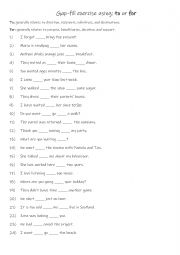
|
A2+-B1+ To or For - uses and reinforcement gap-fill practise
Mastering the use of "to" and "for" enhances students ability to communicate clearly and effectively in both writing and speaking. Correct usage helps prevent misunderstandings that could arise from incorrect preposition use. Accurate use of prepositions like "to" and "for" contributes to more polished and professional communication. It ensures gra...
Level: elementary
Age: 10-100
Type:
Downloads: 108
|
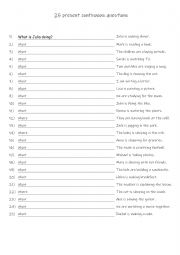
|
A1 25 Present continuous questions
Students read the answers, then they write a suitable question to get that answer. An example is given for number 1. Answers on page 2.
Level: elementary
Age: 8-100
Type:
Downloads: 101
|
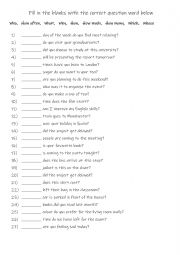
|
A1 Fill in the blanks with the correct question word below
Students familiarise themselves with the question words in bold, then read the sentences to see which interrogative is needed to complete the question. Answers on page 2.
Level: elementary
Age: 8-100
Type:
Downloads: 106
|
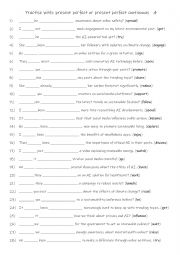
|
A2+-B1 Practise with present perfect or present perfect continuous 4
First Students familiarise themselves with the 2 tenses and their use. Then they read the sentences to work out which one is needed to complete the gap-fill using the infinitive in (). Each tense is used 14 times! Answers on page 2
Level: elementary
Age: 9-100
Type:
Downloads: 126
|
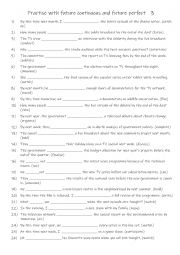
|
A2-B1 Practise with future continuous and future perfect 3
First Students familiarise themselves with the 2 tenses and their use. Then they read the sentences to work out which one is needed to complete the gap-fill using the infinitive in (). Each tense is used 13 times! Answers on page 2
Level: elementary
Age: 10-100
Type:
Downloads: 126
|
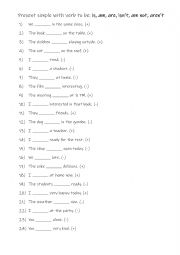
|
Present simple with verb to be: is, am, are, is not, am not & are not practise
Students read the sentence and complete the sentence with the correct form of the verb to be. They use the (+) or (-) sign at the end of the sentence to see if it needs a positive or negative form of the verb to be. Answers on page 2
Level: elementary
Age: 8-100
Type: worksheet
Downloads: 108
|
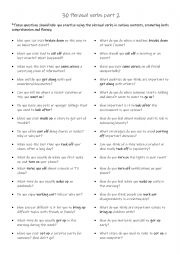
|
30 Phrasal verbs part 1 b
This is a speaking reinforcement activity for the phrasal verbs in Part 1 A. It contains 2 questions for each of the 30 phrasal verb. Suitable for pair work or small groups.This worksheet is suitable for CEFR A2-B1 level students.
Level: elementary
Age: 10-100
Type:
Downloads: 109
|
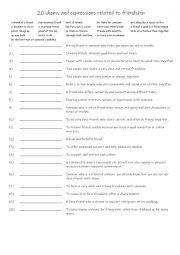
|
B2-C1 20 idioms and expressions related to friendship
First, students need to familiarise themselves with the 20 idioms and expressions and their meanings. Then they read the definitions to see which one is being described and write that word in the space provided Answers on page 2.
Level: advanced
Age: 13-100
Type:
Downloads: 108
|
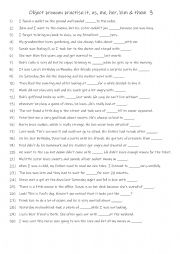
|
A1-A2 Object pronoun practise it, us, me, her, him & them 3
Practising object pronouns like it, us, me, her, him, and them is essential for building clear and natural sentences in English. Object pronouns replace nouns to avoid repetition and make sentences smoother, which is crucial for effective communication. By mastering these, you can better describe actions involving people and things, making everyday...
Level: elementary
Age: 8-100
Type:
Downloads: 121
|
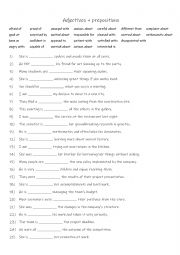
|
B1-B2 25 adjectives + prepositions practise
Learning adjectives with prepositions is important because it helps improve fluency, accuracy, and comprehension in English. Many adjectives require specific prepositions to form grammatically correct phrases (e.g., "afraid of", "interested in"). Understanding these combinations helps students express themselves clearly and naturally. Different pre...
Level: intermediate
Age: 9-100
Type:
Downloads: 125
|












